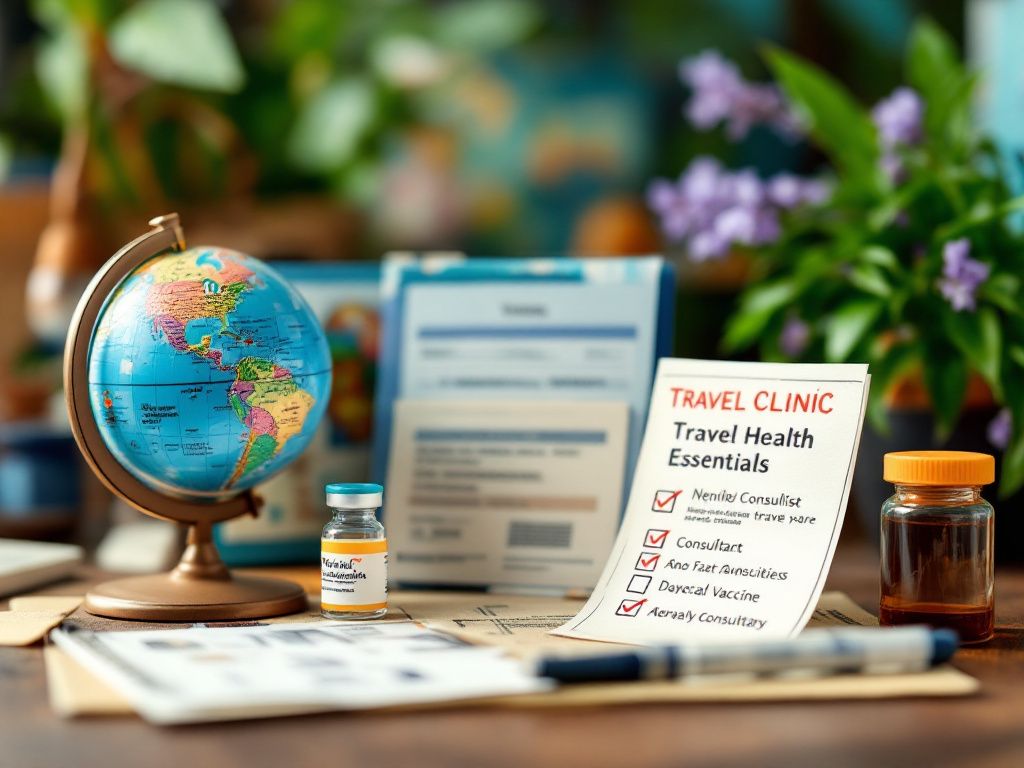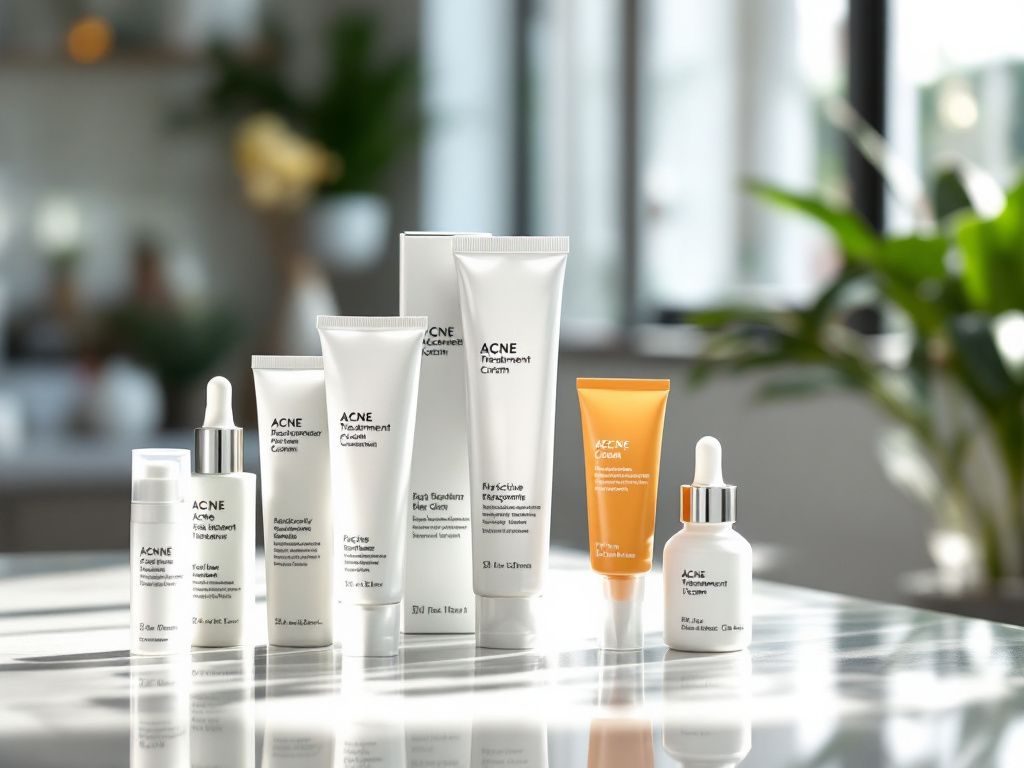Diabetes Management: Medication, Diet, and Monitoring for Optimal Control Living with diabetes calls for a proactive approach that balances medication, diet, and regular monitoring. Whether you are a healthcare professional seeking updated insights or a traveller managing diabetes on the go, a well‐crafted plan can make all the difference. In this article, we explore five key strategies that form the foundation of effective diabetes management, ensuring optimal control and a better quality of life. 1. Medication Management for Steady Glycaemic Control Medication plays an essential role in controlling blood sugar levels, and it is critical that individuals strictly follow the prescribed regimens. Treatment can vary from oral medications such as metformin to insulin injections, each selected based on the patient’s unique needs. Travellers should be particularly cautious about packing and storing their medications properly, ensuring that they are kept at the correct temperature during transit. Equally, healthcare professionals must advise patients on the timing and dosage adjustments when there are changes in routine, such as varying meal times or increased physical activity during travel. It is equally important for patients to maintain an updated medication record and regularly review their regimen with their healthcare provider, ensuring that any side effects or concerns are addressed promptly. A robust medication plan not only helps in managing blood sugar levels but also supports overall well‐being by reducing the risk of complications. 2. Diet and Nutritional Considerations: Fueling the Body Wisely Diet is at the heart of diabetes management. A balanced diet, rich in complex carbohydrates, lean proteins, and healthy fats, is pivotal in maintaining stable blood sugar levels. Travellers should plan meals ahead of time to avoid reliance on quick, processed options that may lead to significant glycaemic fluctuations. Healthcare professionals often recommend consultations with nutritional experts to tailor meal plans according to individual needs. Portion control, meal timing, and the inclusion of fibre‐rich foods are essential components of a healthy diabetes diet. By opting for foods with a low glycaemic index (GI), patients can mitigate sudden sugar spikes and crashes. For those on long journeys, carrying healthy snacks and knowing local food options that align with dietary goals can be highly beneficial. This approach not only supports physical well‐being but also makes it easier to adhere to dietary recommendations, even when away from home. 3. Regular Monitoring: Your Key to Informed Decisions Self-monitoring of blood glucose levels is a cornerstone in diabetes management. Frequent checks empower individuals to understand how various factors such as diet, exercise, stress, and medication influence their blood sugar. With technological advancements, modern glucose monitors have become more portable and user‐friendly, making them ideal for travellers. Healthcare professionals advocate for a personalised monitoring schedule. This could mean checking blood sugar before and after meals or at specific times during the day. When travelling, especially across different time zones, adjustments may be necessary to accommodate changes in routine. Real-time data not only helps in day-to-day management but also forms an integral part of any consultation, allowing clinicians to fine-tune treatment plans based on accurate readings. 4. Lifestyle Modifications: Embracing a Balanced Routine Managing diabetes effectively extends beyond medication and diet. Incorporating regular physical activity and stress management techniques can significantly enhance outcomes. Exercise increases insulin sensitivity and aids in the utilisation of blood glucose as energy. For both residents and global travellers, integrating activities such as walking, cycling, or even yoga can make a tangible difference. It is also important to maintain a balanced work and rest cycle. Sleep plays a crucial role in the body’s ability to regulate hormones and process sugars. Healthcare professionals recommend a minimum of seven hours of quality sleep each night to support overall metabolic health. Travellers might face disruptions in their usual routines; therefore, planning for rest and adopting relaxation techniques during travel can help keep both mind and body in sync. 5. Adapting to New Environments: Essential Tips for Travellers Travelling introduces its own set of challenges when it comes to managing diabetes, making it imperative to plan ahead. Before embarking on any trip, individuals should secure an ample supply of medications and supplies, keeping extra stock in case of unforeseen delays. Additionally, patients should carry a doctor’s note detailing their medical needs, including a list of current medications and dosages. Such precautions can be invaluable at border checks or in emergencies. Alongside robust medication management and dietary planning, staying informed about local healthcare resources is advised. Identifying nearby pharmacies or clinics at the destination can provide an added layer of security. Meanwhile, healthcare professionals appreciate the significance of empowering patients with travel-specific advice and ensuring that individuals have access to timely medical consultations if required. Always remember, a small step taken before travelling can prevent large setbacks later. Conclusion: A Holistic Approach for Long-Term Success Diabetes management is a multifaceted process that thrives on consistency and a holistic approach. By diligently managing medications, embracing a nutritious diet, and committing to regular monitoring, patients can greatly minimise the risks associated with diabetes. Moreover, incorporating lifestyle modifications and being well-prepared when travelling are additional measures that safeguard optimal control and enhance overall quality of life. Whether you are a healthcare professional advising patients or a traveller seeking to maintain your health on the go, consider reviewing your diabetes management plan today. For tailored advice and professional support, do not hesitate to book an appointment with us at Ash Pharmacy. Let us help you take confident steps towards a healthier, more balanced life.
Hormonal Imbalance in Women: Recognizing Symptoms and Exploring Treatment Options
Hormonal Imbalance in Women: Recognising Symptoms and Exploring Treatment Options Hormonal imbalances can affect women at any stage of life, from adolescence through to menopause. These imbalances occur when the levels of hormones in the body are disrupted, potentially leading to a range of symptoms that impact daily life, emotional well‐being, and overall health. With an increasing focus on holistic health, both travellers seeking consistent care and healthcare professionals looking for reliable treatment insights can benefit from exploring the nuances of hormonal imbalance and effective management strategies. Understanding Hormonal Imbalance Hormones play a pivotal role in regulating various bodily functions including metabolism, reproductive cycles, mood, and energy levels. Conditions such as polycystic ovary syndrome (PCOS), thyroid disorders, and menopause are closely linked with hormonal disruptions. Recognising the underlying causes of hormonal imbalances is crucial, as it paves the way for targeted treatment and personalised healthcare planning. Common Causes and Risk Factors The roots of hormonal imbalances can vary widely. Stress, poor diet, and environmental factors all contribute, while genetic predispositions, lifestyle choices, and underlying medical conditions further influence hormone production. For instance, prolonged stress can lead to elevated cortisol levels, which in turn may disrupt the balance of other hormones such as oestrogen and progesterone. Additionally, factors like irregular sleep patterns and sedentary lifestyles can exacerbate these imbalances, underscoring the importance of comprehensive health management. Recognising the Symptoms Early detection of a hormonal imbalance is vital. Women experiencing these issues may notice a variety of symptoms that, when considered collectively, point towards an underlying imbalance rather than isolated health problems. Reproductive and Menstrual Symptoms Many women first become aware of a hormonal imbalance through changes in their menstrual cycle. Irregular periods, unusually heavy or light flows, and unexpected spotting are common symptoms. In some cases, conditions such as PCOS can manifest through symptoms like excessive hair growth or acne, both of which are linked to increased androgen levels. Understanding these signs can help in timely diagnosis and subsequent treatment. Emotional and Psychological Impact Hormones directly influence mood and cognitive function. Women may experience sudden mood swings, anxiety, depression, or difficulties with concentration. These symptoms are often misunderstood as purely psychological issues, yet they are frequently rooted in hormonal fluctuations. Recognising this connection is essential for both patients and healthcare providers, as it can lead to more effective interventions that address both the emotional and physical aspects of the condition. Physical and Metabolic Changes Beyond reproductive and emotional symptoms, hormonal imbalances can also induce physical changes. Weight gain, fatigue, and alterations in sleep patterns are common complaints. Some women might notice an increased sensitivity to cold or heat, hinting at underlying thyroid dysfunctions. These physical manifestations highlight how intertwined hormonal health is with overall well-being and underscore the need for a balanced approach to treatment. Diagnostic Approaches and Medical Evaluation When hormonal imbalance is suspected, a thorough medical evaluation is recommended. This process often involves a detailed review of medical history, symptom tracking, and targeted laboratory tests to measure hormone levels. Blood tests are typically the primary diagnostic tool, though urine or saliva tests may also be used in certain cases. Healthcare professionals may further advise diagnostic imaging or additional endocrine tests to rule out other conditions that might mimic or coexist with hormonal imbalances. A comprehensive evaluation is key to determining the most effective treatment plan, tailored to the individual’s unique medical profile. Exploring Treatment Options The treatment of hormonal imbalances in women is as diverse as its causes. Depending on the symptoms and underlying factors, management strategies may include lifestyle modifications, medicinal interventions, or a combination of both. Lifestyle and Dietary Changes One of the foundational steps in managing hormonal imbalances is adopting a healthier lifestyle. This may involve incorporating a balanced diet rich in fruits, vegetables, lean proteins, and whole grains, while reducing the intake of processed foods and excessive sugars. Regular physical activity is equally important, as it aids in maintaining a healthy weight and mitigating stress levels. Many women find that mindfulness practices such as yoga or meditation not only reduce stress but also help in stabilising mood imbalances. Medicinal and Supplement-Based Approaches Pharmaceutical treatments are frequently prescribed, especially in cases where symptoms are severe or significantly disruptive. Hormone replacement therapy (HRT) is a common choice for menopausal women, aimed at restoring more typical hormone levels. For conditions like PCOS, medications that regulate insulin and androgen levels can alleviate symptoms. Additionally, some patients might benefit from natural supplements, although these should only be taken after consulting a healthcare provider to ensure they complement existing treatments. Personalised and Integrative Care Modern healthcare is increasingly moving towards personalisation. Tailored treatment plans that incorporate both traditional medicinal approaches and complementary therapies are emerging as best practice. Healthcare professionals play a crucial role in this personalised care model, as they can monitor the patient’s progress and adjust treatment protocols accordingly. This holistic approach recognises that effective hormone management often requires a balance between physiologic treatments and strategies that support overall well-being. The Journey Towards Balanced Health For many women, managing a hormonal imbalance is not merely about addressing a single condition, but rather about enhancing overall quality of life. With the right combination of diagnosis, personalised care, and lifestyle adjustments, it is possible to restore balance and regain control over both physical and emotional health. This journey involves understanding one’s body, recognising the early signs of imbalance, and taking timely action to seek professional guidance. The impact of a hormonal imbalance extends to various aspects of life, influencing energy levels, mood, and even interactions with others. By taking proactive steps, affected individuals can significantly improve their personal and professional lives. Moreover, consistent follow-up with healthcare professionals ensures that emerging symptoms are promptly addressed, preventing more serious complications down the line. Moving Forward with Confidence At Ash Pharmacy, we understand that the road to balanced health can be challenging. Whether you are a frequent traveller or a dedicated healthcare professional, recognising and addressing hormonal imbalances is crucial. Our specialised services
Bone Health and Osteoporosis: Prevention Strategies and Treatment Advances
Bone Health and Osteoporosis: Prevention Strategies and Treatment Advances Maintaining optimal bone health is a crucial element in ensuring a vibrant and active lifestyle at any age, particularly for individuals at risk of osteoporosis. This article explores the importance of bone health, clarifies the challenges posed by osteoporosis, and outlines both preventative strategies and the latest treatment advances. Whether you are a traveller looking after your health on the go or a healthcare professional seeking the latest medical insights, the information provided here is designed to inform and engage. Understanding Bone Health and Osteoporosis Bone health refers to the strength and density of your bones, which provide the structural framework for the body. Osteoporosis is a condition characterised by reduced bone density, leading to fragile bones and a heightened risk of fractures. Often deemed the “silent disease”, osteoporosis advances without clear symptoms until a fracture occurs. Early recognition of risk factors and regular monitoring are key, which is why both patients and professionals must prioritise bone health in routine care. Risk Factors and Causes of Osteoporosis Multiple factors contribute to the development of osteoporosis. While ageing is the primary risk factor, other elements include genetics, nutritional deficiencies (notably calcium and vitamin D), hormonal changes—especially post-menopause—and lifestyle habits such as smoking and excessive alcohol consumption. Certain medications and medical conditions can also predispose individuals to decreased bone density. Understanding these factors is essential for effectively tailoring prevention strategies. Prevention Strategies for Maintaining Robust Bone Health Optimising Nutrition A balanced diet plays an essential role in maintaining healthy bones. Adequate intake of calcium and vitamin D is crucial for bone mineralisation. Dairy products, leafy greens, nuts and seeds, as well as fortified foods, should form part of everyday meals. For those who may have difficulty meeting these nutritional requirements through diet alone, supplementation under professional guidance can offer additional support. Regular Physical Activity Engaging in weight-bearing and resistance exercises enhances bone strength and stimulates bone growth. Activities such as walking, jogging, dancing and strength training are beneficial in maintaining bone density and overall mobility. For travellers who may face variable gym facilities or outdoor conditions, planning a routine that includes simple yet effective exercises can ensure continuous bone fortification regardless of location. Lifestyle Modifications Eliminating smoking and moderating alcohol consumption can have a profound impact on bone health. Both behaviours can interfere with the body’s ability to absorb calcium and interfere with the natural bone-building process. Additionally, adopting stress-reduction techniques and ensuring a regular sleep pattern contribute indirectly to healthier bones by promoting overall physical well-being. Advances in Osteoporosis Treatment The management of osteoporosis has seen significant developments over recent years. Innovations in diagnosis and treatment have led to more personalised and effective management strategies for patients at risk. Enhanced Diagnostic Techniques Technological advances in imaging and bone density testing have improved early detection. Dual-energy X-ray absorptiometry (DEXA) remains the gold standard for measuring bone mineral density, and newer methods are providing more comprehensive data to predict fracture risk. This progress enables healthcare providers to administer timely and appropriate interventions. Modern Pharmacological Therapies Recent advancements in pharmacological treatments have revolutionised osteoporosis management. Bisphosphonates, selective oestrogen receptor modulators (SERMs) and monoclonal antibodies such as denosumab continue to be at the forefront of treatment options, each targeting different aspects of bone resorption and formation. Tailored treatment plans ensure that patients receive medication suited to their unique risk profiles and tolerances. Moreover, emerging therapies that focus on stimulating bone formation rather than solely preventing bone loss show promise for future management protocols. Innovative Approaches in Hormone Replacement Hormone replacement therapy (HRT) remains a controversial but sometimes beneficial option for postmenopausal women at risk of osteoporosis. When carefully monitored, HRT can help maintain bone density and reduce fracture risks. Clinicians continue to refine these protocols to balance benefits with potential long-term risks, ensuring that patients derive maximum benefit with minimal adverse effects. Special Considerations for Travellers Travellers often face unique challenges in maintaining a health regimen, including dietary changes, disrupted routines and varying levels of physical activity. For those predisposed to or diagnosed with osteoporosis, planning is essential. Carrying supplements, ensuring access to reliable sources of nutritious meals and incorporating short exercise routines into travel schedules can assist in managing bone health effectively on the road. It is also advisable for travellers to consult with healthcare providers before embarking on long journeys to review any necessary modifications to their treatment plan. Role of Healthcare Professionals in Bone Health Management Healthcare professionals play a pivotal role in both prevention and management of osteoporosis. Regular screenings for at-risk populations, comprehensive patient education and personalised treatment plans are fundamental. Practitioners are now equipped with advanced tools that enable the early detection of bone density decline and the timely administration of modern interventions. By staying updated with recent treatment advances and maintaining open communication with patients, clinicians can significantly impact the long-term outcomes for those vulnerable to osteoporosis. Conclusion: Taking Proactive Steps Towards Healthy Bones Osteoporosis need not be an inevitable consequence of ageing or lifestyle. Through a combination of preventative measures and innovative treatment advances, individuals can maintain robust bone health and minimise the risk of fractures. The integration of a nutrient-rich diet, regular weight-bearing exercise and lifestyle modifications, complemented with modern medical therapies, marks the contemporary approach to managing bone health effectively. For both travellers and healthcare professionals, the key lies in proactive management and early intervention. Staying informed about the latest research and treatment options can empower you to make the best decisions for your health or for those under your care. If you have concerns regarding your bone health or wish to discuss personalised treatment options, consider speaking to a qualified professional. At Ash Pharmacy, we are dedicated to supporting you on your journey towards optimal health. Book an appointment today to explore how our private services can support your bone health strategy.
Travel Health Essentials: Preparing for a Safe and Healthy Journey Abroad
Travel Health Essentials: Preparing for a Safe and Healthy Journey Abroad Travelling abroad offers the excitement of discovery and exploration, yet it also calls for thorough preparation—especially when it comes to your health. At Ash Pharmacy, we understand that whether you are a global wanderer or a healthcare professional advising patients, a proactive approach to travel health is essential. In this article, we explore a list of travel health essentials designed to keep you safe and well on your journey. From immunisations and personalised advice to practical travel kits, each tip aims to help you navigate potential health challenges with confidence. 1. Consult a Travel Health Specialist Your personal health record and travel itinerary play a significant role in determining the right preventative measures. Consulting with a travel health specialist helps identify any health risks specific to your destination. During your consultation, experts assess your vaccination needs, discuss available prophylactic medications, and review other recommendations based on your destination’s endemic diseases. This personalised approach ensures you are well-prepared for any health challenge en route. 2. Keep Up-to-Date with Vaccinations Vaccination status is a critical consideration before embarking on international travel. Many countries require evidence of specific immunisations, and even casual travellers can benefit from updating their vaccination schedule. Hepatitis, typhoid, yellow fever, and meningococcal vaccines are among the common precautions recommended, depending on the destination. Health professionals advise that travellers schedule their vaccinations well in advance, as some require multiple doses over several weeks. 3. Assemble a Customised Travel Health Kit A well-stocked travel health kit is invaluable, particularly if you plan to visit remote areas. Consider including everyday essentials such as plasters, antiseptics, and painkillers, along with medications specific to your needs or any chronic conditions. A comprehensive kit might also contain insect repellent, sunscreen, and rehydration sachets. Tailor your kit to the climate and specific hazards of your destination. This small collection of items could make a significant difference in managing minor health issues while abroad. 4. Research Local Health Risks and Resources Knowledge is power when it comes to staying healthy on your journey. Before you travel, research common diseases and health risks in your destination. Familiarise yourself with the local health care infrastructure and know where to seek help if needed. Whether you encounter food- or water-borne illnesses or insect-transmitted diseases, having a clear understanding of where to access medical care is crucial. For healthcare professionals, this insight can also enhance the quality of advice provided to patients planning their trips. 5. Practice Preventative Strategies Preventative measures are your first line of defence against potential illnesses. Simple steps such as frequent hand washing, using hand sanitiser, staying well-hydrated, and practising safe eating habits can greatly reduce your risk. If you are visiting regions with a history of infectious diseases, additional measures such as avoiding close contact with local animals may also be advised. Emphasising these strategies can help you avoid many common travel-related illnesses. 6. Understand Travel Insurance and Medical Coverage While it may not directly impact your immediate travel health, having comprehensive travel insurance cannot be overstated. In the event of a medical emergency, travel insurance can provide critical support, covering hospital admissions, medication, and repatriation if necessary. Reviewing your policy before departure ensures that you understand the extent of coverage, including any exclusions. For those who travel frequently, healthcare professionals can offer advice on policies that best suit recurring travel needs. 7. Manage Pre-Existing Conditions Effectively If you have a chronic condition or other pre-existing health concerns, preparing adequately before travel is crucial. This includes having a sufficient supply of prescription medications, copies of your medical records, and a letter from your doctor detailing your condition and the required medications. Furthermore, consider setting up a plan with your healthcare provider to manage your condition while abroad, ensuring that you know how to access necessary treatment on your journey. 8. Embrace the Benefits of Digital Health Tools Technology has revolutionised how we manage our health. Mobile apps that offer guidance on local medical facilities, dosage reminders for medications, and even real-time health tracking can serve as excellent companions on your trip. These tools not only provide convenience but also enhanced safety by keeping you informed of important health updates and local advisories. Healthcare professionals are increasingly recommending digital solutions to complement traditional medical advice, ensuring that travellers have continuous support throughout their journeys. 9. Stay Prepared for Environmental Changes Travelling often exposes you to weather shifts, altitude changes, and variations in water and food quality. Bringing appropriate attire, protective gear, and ensuring you are informed about the local climate are practical steps towards safeguarding your health. Additionally, understanding how such environmental factors might affect pre-existing conditions, like respiratory issues or allergies, will help you mitigate risks during your journey. 10. Book a Professional Consultation for Travel Health Advice Ultimately, nothing replaces the peace of mind that comes with personalised advice from a healthcare professional. With each destination presenting unique challenges, a professional consultation can provide tailored strategies that encompass all aspects of travel health. Whether you are a traveller or a healthcare provider planning to counsel patients, the insights gathered during such consultations can be invaluable. For your next journey, consider booking a consultation to secure your health and travel plans. Contact Ash Pharmacy to schedule an appointment and receive expert advice customised to your travel requirements. Preparing for international travel involves more than just packing your suitcase—it requires a thoughtful approach to your health. By ensuring that your vaccinations are up-to-date, customising your travel health kit, and understanding the local health context of your destination, you set the stage for a safe and enjoyable adventure. Remember, proactive measures taken today can prevent future complications. Whether you are seeking advice on managing your health on the road or planning an overseas trip with well-informed precautions, Ash Pharmacy is here to help. We invite you to take the next step with confidence. Book your consultation with our travel health specialists today and safeguard your journey
Cold and Flu Season Preparedness: Tips to Strengthen Your Immune System
Cold and Flu Season Preparedness: Tips to Strengthen Your Immune System As cold and flu season approaches, both travellers and healthcare professionals are increasingly focused on maintaining a robust immune system. In this FAQ article, we address common questions about preparing your body for the rigours of seasonal illnesses. Whether you are frequently on the move or working on the frontline of healthcare, understanding how to optimise your health can make a profound difference. Read on to gain valuable insights and practical advice to help you stay healthy during the colder months. What key measures can I take to strengthen my immune system before cold and flu season? Strengthening your immune system begins with the basics. A well-balanced diet rich in fresh fruits, vegetables, whole grains, lean proteins, and healthy fats is essential. Regular exercise, adequate sleep, and effective stress management also play central roles. Incorporating vitamin C, vitamin D, and zinc either through your diet or supplements may further support your immunity. Finally, staying hydrated and limiting alcohol consumption are practical steps that can help you maintain a robust immune response. How can travellers ensure they remain healthy throughout their journeys during flu season? Travellers face unique challenges, as airports, airplanes, and crowded public transport can all be breeding grounds for viruses. Prioritise frequent hand washing or sanitising, and consider using tissues or disposable wipes when in contact with high-touch surfaces. Staying up to date with vaccinations, including the seasonal influenza vaccine, is crucial. Planning ahead by packing travel-sized health essentials—such as hand sanitisers, face masks, and immune-boosting supplements—can help you safeguard your health on the go. Why is sleep so critical to immune function during the colder months? Quality sleep is a cornerstone of a healthy immune system. During deep sleep phases, your body repairs itself and allocates energy toward fighting off infections. Insufficient or poor-quality sleep weakens your resistance to viruses, making you more vulnerable during cold and flu season. Establishing a regular sleep routine, avoiding screen time before bed, and creating a dark, quiet sleep environment can substantially improve both the quantity and quality of your sleep, ultimately strengthening your immune defences. What role does nutrition play in supporting immune health, and are there specific foods I should include in my diet? Nutrition forms the foundation for a strong immune system. Foods high in antioxidants, vitamins, and minerals boost the body’s natural defences. Citrus fruits, berries, leafy greens, nuts, and seeds all offer essential nutrients that support immune function. Additionally, fermented foods like yoghurt and sauerkraut provide probiotics that enhance gut health, a critical factor in overall immunity. Including these foods in your daily diet not only helps protect you during flu season but also enhances your general well-being. How can healthcare professionals protect themselves and their patients during cold and flu season? Healthcare professionals have a vital role in managing public health, and staying protected is paramount. Alongside standard hygiene practices, ensuring that you have received the latest influenza vaccine can help reduce the risk of transmitting infections. Professionals should maintain rigorous infection control protocols, including the use of personal protective equipment (PPE) and frequent hand hygiene. Adequate rest and proper nutrition are also important, as the demands of working in healthcare environments can be particularly taxing on the immune system. Are there benefits to using private pharmacy services for cold and flu season preparation? Private pharmacy services provide personalised and accessible healthcare solutions that can be particularly beneficial during cold and flu season. At Ash Pharmacy, for example, you can enjoy direct consultations with healthcare professionals who can offer tailored advice on supplements, over-the-counter medications, and vaccination schedules. Private services often allow for a more flexible appointment system, enabling you to address your health concerns quickly and effectively. This approach can be particularly valuable for travellers who may need timely advice and prescriptions before embarking on their journey. How important are vaccinations in your cold and flu season preparedness strategy? Vaccinations remain one of the most effective means to protect yourself against influenza and other respiratory illnesses. The seasonal flu vaccine works by stimulating your immune system to develop antibodies specific to the virus strains predicted for that season. While not 100% foolproof, vaccination significantly reduces the severity and duration of the illness if you do contract the virus. Healthcare professionals and individuals with frequent public exposure are especially encouraged to receive their vaccinations to help curb the spread of infections. What additional lifestyle habits can help maintain immune strength during periods of increased illness risk? Beyond diet, exercise, sleep, and vaccinations, adopting a comprehensive lifestyle approach can reinforce your immune defences. Regular physical activity, even daily brisk walks or stretching sessions, facilitates circulation which enhances the efficiency of your immune cells. Staying organised and maintaining social connections, even with a simple phone call or video chat, can alleviate stress—a known factor in immune suppression. Lastly, practising mindfulness or relaxation techniques such as meditation can contribute substantially to lowering stress levels, thereby supporting a healthier immune system. In conclusion, cold and flu season preparedness requires a multi-faceted approach that blends healthy lifestyle choices, proactive medical care, and practical travel precautions. Whether you are a healthcare professional managing daily risks or a traveller preparing for new destinations, the strategies discussed above can empower you to take control of your health. If you’re ready to take the next step in protecting your well-being, consider booking an appointment with the expert team at Ash Pharmacy. Their personalised care and professional guidance can help tailor a plan that works best for you. For more details or to secure your slot, please book an appointment now.
Men’s Health: Essential Vaccinations and Wellness Checks for the Modern Man
Men’s health is a vital aspect of overall wellness that often doesn’t receive the attention it deserves. For the modern man – whether you are a frequent traveller or a dedicated healthcare professional – staying on top of essential vaccinations and wellness checks is crucial. Ensuring you are up to date with immunisations not only protects you from preventable illnesses but also enhances your resilience against the strains of daily life. In this article, we’ll explore key vaccinations and regular wellness checks that every man should consider, and how Ash Pharmacy is here to help you maintain optimum health. 1. Seasonal Influenza Vaccination Influenza, commonly known as the flu, affects millions each year and can lead to serious complications, particularly for those with underlying health conditions. For men who travel frequently, the risk increases as you’re exposed to varied climates and crowded spaces. An annual flu vaccination is one of the most effective ways to prevent seasonal influenza. This vaccine is especially important for healthcare professionals who are on the frontline, as well as for any modern man looking to minimise downtime due to illness. By ensuring you receive your flu shot, you protect not only yourself but also those around you, contributing to a safer community. 2. Tetanus Booster and Diphtheria Protection Tetanus is a serious bacterial infection that can arise from common cuts or wounds, making it a critical immunisation for active individuals. The tetanus vaccine is typically administered in combination with diphtheria protection. It is particularly important for travellers who might face minor injuries in unfamiliar environments. Men often underestimate the need for a tetanus booster, yet updating this vaccination every ten years can be a vital part of your wellness routine. If you’re unsure of your current status, consider scheduling a consultation to review your vaccination history. 3. Hepatitis B Vaccination Hepatitis B is a liver infection caused by the hepatitis B virus (HBV) and is transmitted through contact with infectious bodily fluids. Healthcare professionals and travellers, especially those planning trips to regions with higher rates of hepatitis B, should prioritise this vaccination. The Hepatitis B vaccine is an excellent example of how proactive care can prevent long-term health complications. By ensuring you have received the full course of the vaccine, you significantly reduce your risk of contracting this potentially severe infection and safeguard your long-term well-being. 4. Human Papillomavirus (HPV) Vaccine While commonly associated with women, the Human Papillomavirus (HPV) vaccine is increasingly recognised as an important measure in men’s health too. HPV infections can lead to several types of cancers and other diseases. Vaccination in adolescence and early adulthood is recommended to provide the best protection, but it is also beneficial for men who may have missed their initial opportunity for immunisation. With increased awareness surrounding HPV, more men are taking steps to protect themselves and contribute to a broader public health strategy. 5. Travel-Specific Vaccinations If you’re a globetrotter, there are several additional vaccinations you may need depending on your destination. Vaccines such as those for typhoid, yellow fever, and meningococcal disease can offer essential protection while abroad. Travellers often overlook these specialised vaccines which are designed to mitigate risks encountered in distant regions. Understanding the vaccination requirements and recommendations for your destination can make all the difference when it comes to staying healthy on the road. Consulting with a trusted pharmacy service can ensure your journey is safeguarded against preventable diseases. 6. Regular Comprehensive Wellness Checks Vaccinations form just one part of a proactive approach to men’s health. Routine wellness checks are equally important in maintaining long-term health. These checks typically involve a full health assessment, screening for conditions such as high blood pressure, high cholesterol, diabetes, and other risk factors. Regular screenings can lead to early detection and better management of potential health issues, ensuring you remain active and vibrant regardless of your age or travel plans. Given today’s fast-paced world, integrated wellness checks provide a holistic approach to your health that goes well beyond the basics of immunisation. Maintaining optimal health through essential vaccinations and regular wellness checks is a key investment in your future. By prioritising these steps, you not only protect yourself but also support public health – making travel and professional environments safer for everyone. At Ash Pharmacy, our team of experts is dedicated to providing accessible, private healthcare services tailored to your needs. Whether you’re preparing for a journey or simply looking to stay ahead in your health regimen, we offer a comprehensive range of services designed with you in mind. If you’re ready to take control of your health and ensure you’re fully protected, we encourage you to book an appointment with us. Visit our booking page today and take the first proactive step towards a healthier tomorrow.
Seasonal Allergy Management: Natural Remedies and Medical Solutions
Seasonal Allergy Management: Natural Remedies and Medical Solutions Seasonal allergies can disrupt everyday life, whether you are a busy professional or a traveller exploring new destinations. Coping with pollen, dust, and other environmental triggers is a shared experience for many, and there is no one-size-fits-all approach to managing symptoms. In this article, we explore a range of natural and medical methods to ease seasonal allergies, helping you to regain control and enjoy life with fewer interruptions. Understanding Seasonal Allergies Seasonal allergies occur when the immune system overreacts to harmless environmental substances, such as pollen or mould spores. Symptoms like sneezing, itchy eyes, and congestion are common signs that your body is trying to protect itself from perceived threats. It is important to understand that while these reactions are natural immune responses, they can detract from your quality of life, especially during travel or in professional settings where comfort and concentration are key. Natural Remedies for Managing Allergy Symptoms Many individuals seek natural remedies to complement or replace conventional allergy treatments. These remedies focus on reducing inflammation and strengthening the immune system through lifestyle changes and natural agents. Herbal Teas and Nutritional Boosts Herbal teas, such as peppermint and chamomile, can provide soothing relief from allergy symptoms. These teas help reduce inflammation and promote relaxation. Including a balanced diet rich in antioxidants can also support the immune system. Foods high in vitamin C, such as citrus fruits and leafy greens, may help mitigate the severity of allergy symptoms. For those who travel frequently, keeping a stock of herbal teas and vitamin supplements can be a convenient way to manage symptoms on the go. Essential Oils and Aromatherapy Aromatherapy has long been used to alleviate stress and respiratory issues. Essential oils like eucalyptus and lavender can open up congested airways and help you breathe more easily. A few drops in a diffuser or added to bath water may offer significant relief. For healthcare professionals, integrating aromatherapy into wellness routines can provide a natural boost during long shifts, where maintaining focus and calmness is essential. Local Honey and Allergen Exposure There is anecdotal evidence that consuming local honey can help build tolerance to local pollen. While scientific studies offer mixed results, many people find that regular consumption of locally sourced honey provides a mild desensitisation effect over time. This method is especially appealing for travellers who might experience new types of pollen in unfamiliar regions. However, it is important to remember that this approach should be used in conjunction with other treatments rather than as a standalone cure. Medical Solutions and When to Seek Professional Advice In cases where natural remedies are not sufficient or symptoms become particularly severe, medical treatments can offer substantial relief. Recognising when to seek professional advice is crucial for effective allergy management. Over-The-Counter Medications Antihistamines are often the first line of defence against seasonal allergies. They work by blocking the effects of histamines, the chemicals responsible for most allergic symptoms. For many, these medications provide quick relief from sneezing, itching, and watery eyes. Nasal sprays are another common option, offering targeted treatment to reduce congestion and inflammation. As with any medication, it is advisable to consult with a healthcare provider to determine the most appropriate over-the-counter solution for your specific needs. Prescription Treatments and Allergen Immunotherapy For those with persistent or severe allergies, prescription medications may be necessary. These treatments can include stronger antihistamines, corticosteroids, or even customised immunotherapy treatments. Immunotherapy involves gradually exposing the body to small amounts of the allergen, ultimately building up tolerance over time. This approach, while requiring a longer course of treatment, can significantly reduce allergy symptoms in the long run. Healthcare professionals will be able to provide guidance on whether immunotherapy is a suitable option based on your allergy profile. Managing Allergies During Travel Travelling can present unique challenges for individuals with seasonal allergies. New environments often mean exposure to unfamiliar allergens, which can exacerbate symptoms. Travellers are encouraged to prepare in advance by researching the local flora and air quality, packing appropriate medications, and exploring natural solutions available at their destination. Preparing Your Travel Kit Carrying a well-stocked travel kit that includes both natural remedies and over-the-counter medications can be a lifesaver. Pack items such as antihistamines, essential oils, and herbal teas to ensure you have multiple options to combat allergic reactions. Additionally, consider wearing sunglasses to protect your eyes from pollen and dust when outdoors. The key is to have a plan in place so that your travel adventures remain enjoyable and free from the disruption of allergy symptoms. Local Healthcare Services and Support If symptoms become unmanageable while travelling, it is important to know where to seek help. Local pharmacies, like Ash Pharmacy, can provide both medical advice and ready access to treatments. Whether you’re abroad or in a new town, professional healthcare support is just a local visit away. It is always advantageous to have the contact details of nearby healthcare service providers, particularly when exploring unfamiliar areas. Integrating a Holistic Approach Combining natural remedies with conventional medical treatments offers a holistic approach to managing seasonal allergies. By listening to your body and adapting your strategies, you can find a balance that suits your lifestyle. Travellers and healthcare professionals alike benefit from a multifaceted approach where dietary adjustments, lifestyle improvements, and proven medical interventions work collaboratively. Communication is also a key component of effective allergy management. Whether you are managing your symptoms or advising a patient, understanding that each individual’s response to allergens is unique allows for a personalised treatment plan. At Ash Pharmacy, our goal is to ensure that everyone receives care tailored to their specific needs, making it easier to navigate the challenges of seasonal allergies. Taking Action: Book Your Appointment Today Managing seasonal allergies doesn’t have to be overwhelming. If you are looking for professional guidance or need to address more persistent allergy issues, consider booking an appointment with our expert team at Ash Pharmacy. With our comprehensive range of private services, we are
Shingles Vaccine: Who Needs It and Why It’s Important
Shingles Vaccine: Who Needs It and Why It’s Important Shingles, medically known as herpes zoster, is a painful condition caused by the reactivation of the varicella-zoster virus—the same virus responsible for chickenpox. With a vaccine available to help reduce the likelihood and severity of this distressing condition, understanding who should consider the shingles vaccine has become increasingly important. This article aims to provide clear and detailed insight for both travellers and healthcare professionals, outlining the critical reasons why the shingles vaccine should be on your radar. Understanding Shingles and Its Impact Shingles typically presents as a painful, blistering rash that appears on one side of the body, often accompanied by nerve pain that can continue long after the rash has healed. This persistent pain, known as post-herpetic neuralgia (PHN), can significantly affect quality of life and daily functioning. The risk of developing shingles increases with age and among those with weakened immune systems. For both travellers and healthcare professionals, it is essential to recognise that anyone who has had chickenpox is at risk of developing shingles later in life, making preventive measures worthwhile. The Shingles Vaccine: An Overview The shingles vaccine is designed to strengthen the immune system’s defence against the reactivation of the virus. There are two main types available: a live-attenuated vaccine and a more recent recombinant vaccine. While the choice of vaccine may vary depending on individual circumstances and national guidelines, the overarching goal is the same – to reduce the clinical severity of the infection and to lower the risk of developing complications such as PHN. For those who are particularly susceptible to shingles, such as older adults or immunocompromised individuals, the vaccine provides an important line of defence. The preventive nature of the treatment not only mitigates immediate discomfort but also avoids long-term consequences that can arise from recurrent episodes of the virus. Who Should Consider the Shingles Vaccine? Older Adults and Individuals Ageing Gracefully One of the primary groups targeted for the shingles vaccine is adults over the age of 50. With advancing age, the immune system naturally weakens, increasing vulnerability to infections such as shingles. Studies have highlighted that vaccination significantly reduces the incidence and severity of the condition. Healthcare professionals should prioritise discussions about vaccination with older patients, emphasising the preventative benefits and the reduction in long-term complications. Individuals with Weakened Immune Systems People living with conditions that affect the immune system—whether due to chronic illnesses, treatments like chemotherapy, or post-transplant medications—should consider the vaccine as an essential preventive measure. A compromised immune system not only heightens the risk of shingles but can also lead to more severe manifestations of the infection, making proactive immunisation a vital part of comprehensive healthcare. Travellers and Global Citizens While travelling, individuals often expose themselves to different environments and stressors, potentially affecting overall health. Travellers who are in the higher risk age bracket or who have underlying health issues may find that their immune system is further strained during trips. Being vaccinated against shingles can offer an extra layer of protection while navigating foreign climates and seasonal changes, ensuring that a trip is memorable for all the right reasons. Moreover, healthcare professionals travelling for conferences or work might appreciate the added reassurance of being protected against this virus. Benefits and Considerations of the Shingles Vaccine There are several significant benefits attached to receiving the shingles vaccine. Firstly, the vaccine reduces the chance of contracting shingles by boosting the immune system’s capacity to handle the dormant virus. Even in the event of a breakthrough infection, vaccinated individuals tend to experience a milder course of the disease with fewer complications. Secondly, and importantly, the vaccine lowers the risk of developing post-herpetic neuralgia, a debilitating condition that can severely impact one’s quality of life. This is of particular importance for older adults and those managing multiple health issues, where long-lasting nerve pain can exacerbate other conditions or lead to additional health complications. There are a few considerations before deciding on the vaccine. Individuals should ideally consult with a healthcare professional to discuss any potential contraindications, such as allergies to vaccine components or interactions with existing medications. Additionally, it is important to factor in any travel-related immunisations and ensure that appointments for these do not conflict with the schedule for receiving the shingles vaccine. Healthcare Professionals: Advising and Administering the Vaccine For healthcare professionals, the role extends beyond personal protection. It includes educating patients on the benefits and risks associated with the shingles vaccine. By fluently integrating the vaccine into routine practice, clinicians can significantly reduce the overall health burden on the community. Comprehensive patient education and preventive care form the backbone of effective public health strategies. Clinicians are encouraged to maintain an open dialogue with patients regarding their travel plans and lifestyle changes. For instance, a robust conversation about how travel-related stress and environmental changes can impact the immune system might help convince a hesitant patient about the merits of getting vaccinated. Technology and electronic health records can facilitate follow-up appointments and ensure that vaccination schedules are adhered to properly, thereby maximising patient outcomes. The Shingles Vaccine in the Context of Travel Travelling can disrupt regular health routines. Time zone changes, altered sleeping patterns, and dietary variations can impact one’s overall immunity. For travellers in the higher risk category, planning ahead and ensuring vaccinations are up to date becomes a key consideration. Healthcare professionals working in or travelling to different parts of the world should consider not only the basic travel immunisations but also seasonal vaccines and preventive measures that keep them in peak condition. Additionally, public awareness about the shingles vaccine in travel clinics has increased as campaigns have highlighted the importance of comprehensive travel health. This is particularly relevant for older travellers and those visiting countries with limited access to advanced medical care. In such cases, receiving the shingles vaccine before departure is a proactive step towards minimising health risks and ensuring a safer travel experience. Taking Action: Book Your Appointment Today Deciding to get vaccinated
Acne Treatments Demystified: From Creams to Prescription Solutions
Acne Treatments Demystified: From Creams to Prescription Solutions Acne can be both a frustrating and persistent skin issue, affecting not only young adults but also travellers and professionals who lead busy lives. As everyday stressors and changing climates impact the skin, finding the right treatment is crucial. At Ash Pharmacy, we understand the diverse needs of our clients – from those seeking quick over‐the‐counter solutions during their travels to healthcare professionals looking for advanced prescription treatments for their patients. Understanding Acne and Its Impact Acne is more than a cosmetic concern – it represents a complex interplay between hormones, bacteria, and inflammation. While it is most commonly seen during puberty, many adults continue to experience outbreaks well into their later years. For travellers, environmental changes, diet alterations, and stress can exacerbate pre‐existing skin conditions, summoning unexpected breakouts. Meanwhile, healthcare professionals recognise the emotional toll that persistent acne can impose on their patients, often seeking clear and effective treatment plans that address both physical and psychological well‐being. Different Types of Acne and Their Treatments The term “acne” covers a range of conditions. There are mild forms, such as blackheads and whiteheads, which might be manageable with simple creams, and more severe forms like cystic acne, which require potent prescription solutions. The diversity in presentation means that treatment must be individualised. At Ash Pharmacy, our experienced professionals offer detailed consultations to ensure that each treatment plan aligns with the patient’s skin type, lifestyle, and unique needs. Creams and Over-the-Counter Solutions For those experiencing mild to moderate acne, creams and topical solutions form a critical first line of defence. Many over‐the‐counter products contain active ingredients like benzoyl peroxide or salicylic acid, both of which work to reduce inflammation and clear blocked pores. These products are well‐suited for travellers who need to manage mild outbreaks on the move without the hassle of prolonged prescription processes. However, while creams can be effective, it is crucial to use them as directed to avoid skin dryness or irritation. How Do Topical Creams Work? Creams target the skin’s surface, helping to unclog pores and reduce live bacteria that may contribute to inflammation. They also assist in reducing redness and swelling, allowing for quicker skin recovery. For travellers, especially, the convenience of using a compact cream on the go can make a significant difference in maintaining clear skin during stressful journeys. Prescription Treatments Demystified When over‐the‐counter remedies fall short, prescription solutions often offer the next step in managing severe or persistent acne. Prescription medications, including topical retinoids and oral antibiotics, work at a deeper level, addressing the underlying causes of acne rather than just treating the visible symptoms. For individuals whose acne might be linked to hormonal imbalances or other internal factors, more specialised treatments like hormonal therapy may be recommended. Healthcare professionals often turn to these options when addressing complex cases in their clinical practice. Specialist Consultation: Why It Matters Individual skin care needs vary widely. A detailed consultation not only ensures that the correct treatment is applied but also helps avoid adverse reactions. This process is invaluable for both travellers who may be unsure of the changes occurring in their skin across different environments and healthcare professionals who are managing an array of conditions in a clinical setting. By assessing the patient holistically, specialists can offer personalised advice that supports long-term skin health. Lifestyle and Dietary Considerations While treatments are essential, it is also worth acknowledging that lifestyle factors play a significant role in acne management. Diet, hydration, and stress management are all critical elements of skin health. For instance, high-glycaemic foods can potentially worsen acne, while maintaining a balanced, nutrient-rich diet can promote clearer skin. Travellers, in particular, may find themselves in environments where dietary options are limited. In these cases, understanding the importance of nutrient-dense meals and regular hydration can prevent acne flare-ups. Navigating the Consultation Process Whether you are a traveller seeking immediate relief or a healthcare professional exploring effective treatment plans for patients, the consultation process is a valuable step towards achieving clear skin. During your consultation at Ash Pharmacy, you can expect a thorough evaluation of your skin history, lifestyle factors, and any previous treatments. This approach ensures that the solution offered is both safe and effective. Personalized consultations form a critical part of the modern approach to acne treatment, particularly in an era when skin needs can vary dramatically with travel and work demands. The Role of Ash Pharmacy in Your Acne Treatment Journey At Ash Pharmacy, our expertise in both over‐the‐counter and prescription treatments is designed to meet the needs of a diverse clientele. We appreciate that travellers are often in search of fast, effective solutions that are easy to integrate into a hectic lifestyle. For healthcare professionals, we pride ourselves on offering evidence-based advice and treatment options that can be integrated into larger care plans. Our professionals stay updated with the latest developments in dermatological research and treatments, ensuring that whether you require a quick fix or a long-term treatment plan, you are always well-supported. With an emphasis on thorough consultations and personalised care, Ash Pharmacy has become synonymous with effective acne management. Taking the Next Step Towards Clearer Skin If you have been struggling to find a treatment that suits your busy lifestyle or specific skin needs, consider a consultation at Ash Pharmacy. Our expert team is here to help demystify your acne treatment options, guiding you from simple creams to more complex prescription solutions. We invite you to book your appointment now and take the first step towards healthier, clearer skin. Together, we can develop a treatment plan that is tailored to your individual circumstances, ensuring you walk away with confidence, no matter where your journeys take you. In conclusion, understanding the different pathways to managing acne is essential for anyone who values effective skincare. Whether your path involves over‐the‐counter creams for immediate relief or prescription treatments for chronic conditions, the key is to remain informed and proactive. By combining expert consultation with personal responsibility for
B12 Deficiency: Symptoms, Risks, and How Injections Can Help
B12 Deficiency: Symptoms, Risks, and How Injections Can Help Vitamin B12 deficiency is a common health concern that can affect both travellers and healthcare professionals. Whether you are frequently on the move or working long hours in a demanding environment, recognising the symptoms of B12 deficiency and understanding how B12 injections can aid in restoring energy and vitality is essential. In this article, we explore the signs of a deficiency, the potential risks associated with untreated low B12 levels, and the benefits of treatment through injections provided by trusted private services. Understanding Vitamin B12 and Its Importance Vitamin B12, also known as cobalamin, is a water-soluble vitamin that plays a critical role in red blood cell production, nerve function, and DNA synthesis. It is primarily found in animal-based foods, and absorption can be impacted by dietary restrictions, underlying medical conditions, or lifestyle factors such as prolonged travel. Without sufficient B12, the body struggles with energy production and maintaining a healthy nervous system, which can lead to a range of symptoms. Common Symptoms of B12 Deficiency Identifying B12 deficiency can sometimes be challenging because its symptoms overlap with other conditions. However, being alert to the typical signs can be the first step towards diagnosis and treatment. For travellers, recognising these symptoms early is key to managing health away from home. Signs to Watch Out For The symptoms of B12 deficiency can vary from person to person, but they often include persistent fatigue, weakness, and a general sense of malaise. Many people experience neurological issues such as tingling sensations in the hands and feet, memory loss, or mood changes. Other common symptoms include: Shortness of breath and dizziness Pale or jaundiced skin Mouth ulcers and a smooth, red tongue These manifestations might seem subtle at first, but if they are left untreated, they can result in more serious health complications, particularly in individuals with pre-existing conditions or those who lead highly active lifestyles. The Risks of Untreated B12 Deficiency Ignoring a potential B12 deficiency can lead to significant health issues. For healthcare professionals, who often operate in fast-paced and high-stress environments, prolonged deficiency may affect performance and overall well-being. Travellers, on the other hand, might find that untreated B12 deficiency exacerbates issues like jet lag and general fatigue, impairing the ability to enjoy travel adventures and meet travel commitments. Over time, untreated B12 deficiency can cause irreversible neurological damage. This may manifest as difficulty with balance, memory problems, and cognitive impairment. Additionally, chronic anaemia—a condition characterised by a low red blood cell count—can develop, reducing the oxygen supply to vital organs and leading to further complications. How B12 Injections Can Make a Difference B12 injections are becoming an increasingly popular treatment option. They provide a quick, direct method to elevate B12 levels in the bloodstream, bypassing potential absorption issues related to the digestive tract. This is particularly beneficial for individuals who have undergone bariatric surgery or have gastrointestinal disorders. Benefits of B12 Injections One of the main benefits of B12 injections is the rapid alleviation of symptoms. Travellers dealing with fatigue and a sluggish immune system can find renewed energy shortly after treatment. Similarly, healthcare professionals experiencing cognitive decline or mood fluctuations due to B12 deficiency may notice improvements in concentration and overall mental clarity. Other advantages include: Improved energy levels and reduced feelings of exhaustion Enhanced concentration and mental clarity Promotion of healthy nerve cell function Aiding the body’s overall metabolic function The simplicity and effectiveness of B12 injections make them an appealing option for those looking to address a deficiency quickly and efficiently. What to Expect During a B12 Injection Treatment If you are considering B12 injections, it is important to know what to expect during your treatment. Typically administered via intramuscular injection, the treatment process is straightforward and performed by a qualified healthcare professional. This method ensures that the vitamin is absorbed directly into the bloodstream, providing a more immediate impact compared to oral supplements. During your consultation, a healthcare provider will review your symptoms and conduct a series of tests to confirm your B12 levels. Once a deficiency is identified, they will craft a personalised treatment plan. The number of injections required depends on the severity of the deficiency. For many patients, a series of injections followed by periodic maintenance doses is recommended to keep B12 levels stable. Considerations for Travellers and Healthcare Professionals Travellers may face unique challenges when it comes to maintaining adequate B12 levels. Changing time zones, disruptions in regular diet, and stress can all contribute to vitamin depletion. It is prudent for frequent flyers and those on extended trips to pay close attention to their nutrition and, if necessary, consider B12 injections as a preventive measure. Healthcare professionals, meanwhile, work in environments where long shifts and high demands place stress on the body. Their busy schedules often leave little time for proper nutrition. For these individuals, B12 injections can provide a quick boost, helping to maintain the energy levels required for demanding work schedules. Integrating B12 Treatment into Your Healthcare Regime Whether you are a healthcare provider recommending treatment to your patients or a traveller aiming to maintain your well-being, integrating B12 injections into your healthcare regime can be a smart strategy. The treatment is not only efficient but also offers benefits that extend beyond merely addressing fatigue. Patients often experience improved mood, enhanced mental clarity, and even better metabolic function. By addressing B12 deficiency early, you can prevent the long-term risks associated with this condition. It is highly recommended to consult with a healthcare provider who can guide you through the process, ensure your safety, and provide tailored advice based on your specific needs. Taking the Next Step Ultimately, recognising and treating B12 deficiency is vital for maintaining overall health and vitality. With the convenience of B12 injections available through private services, including those tailored for travellers and busy healthcare professionals, addressing this deficiency has never been more accessible. If you suspect a deficiency or are just looking to optimise your health,










